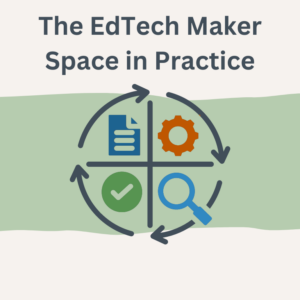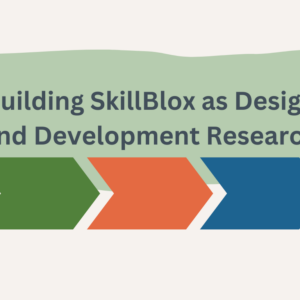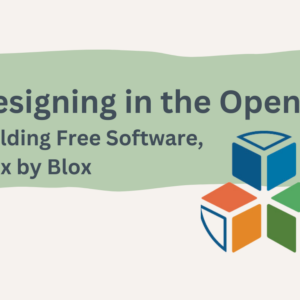 By the 21CLEO Research Team
By the 21CLEO Research Team
Preface
Part of our research process has been to engage the voices of individuals involved in employer-supported education and training initiatives or otherwise impacted by the issues we have been investigating. To this end, we hosted a series of convenings to discuss our findings and invited a group of 12 interested parties who represented a range of backgrounds and experience in the workforce development system to respond to our initial observations, to make sure that we are doing things that were relevant and useful, and to identify things that we had missed or that we didn’t get right.
Participants in the convenings, who we consider our research partners, included working learners, individuals who work directly with front-line workers, adult education practitioners, others who work in the workforce development system, and individuals who work for organizations known to engage in research and advocacy. The practitioners and professionals among this group shared a number of characteristics that made their insight especially valuable. Many were working on innovative projects focused on adult learning and workforce development. Their interest and experience working to improve access to relevant education and training meant that they knew about different innovative initiatives or approaches. They were thus uniquely qualified to respond to our research findings in a series of three convenings, each with a different focus. We described the process that we used to involve working learners in the research process in a blog post called Many Voices: Participants as Research Partners. In this post, we focus on what our research partners think about our findings on learning and advancement.
In some of our earliest work, we identified four reasons people engage in learning opportunities: future possibilities, learning foundational skills, earning a degree or certificate, and satisfying a job requirement. As we progressed with our analysis, we were able to add nuance to our understanding of the relationship between learning and job advancement. We’ve found that it’s not always clear to the working learner whether, how, and if learning may or may not lead to tangible outcomes at work.
Our data show that learners’ engagement in education and training activities was generally spurred by their belief that their learning would have some benefit either immediately or down the line. For some individuals, learning preceded job advancement. For others, learning was done on a “just-in-time” basis in response to the immediate needs of a job opportunity. This learning could be done independently or through employer-sponsored programs.
Another set of working learners engaged in learning thinking it would result in job advancement only to find it did not. There were also learners for whom learning was disconnected from their jobs. This was especially true of English Language Learners. Although key stakeholders shared with us that learning English would enable working learners to move to “front of the house” jobs which were more lucrative, we did not see that in our data. Most of the English Language Learners were participating in order to gain language skills for personal development or simply because the class was available, free, and fit within the demands of work and family life.
We shared this set of findings with the individuals who had participated as research partners and asked them to respond to a set of questions. We received thoughtful and thought-provoking responses from our research partners, some of whom are working learners and others are interested parties from a variety of settings. Responses have been lightly summarized and edited for brevity and clarity. Because of space limitations, not all responses are shared, but we certainly appreciate the time and effort each participant put into responding.
In general, our research partners agreed that learning precedes advancement, but the working learners indicated that it didn’t always hold true. For example, one research partner, who worked in food service, noted that for job-required skills, “it is more common for supervisors to expect fast learning and get the job [task] right the first time an employee is told.” And another research partner said, “Our employer partners did not tie any direct or immediate promotion or monetary incentive to the employees who took part in additional training. This is unfortunate, as we have learned recently that some WIOA funding that employers can access does require that the employer 1) share a portion of the cost and 2) commit to a raise, even if it is a ten-cent per hour raise, just something tangible.”
Additionally, our research partners told us that while just-in-time learning may have been sufficient in the past, most employers now expect employees to come into a position with credentials in place, which as one research partner noted for refugees and immigrants, “is impossible in most cases.” As another research partner noted, “During the pandemic, adult language learners told us that they “know how to do the job” but if employers require a credential before hiring them, then it will be a lot longer for the job to get done because of the time it will take the learners to master English. They were unemployed or employed in jobs other than their trade because they did not know enough English to pass the certification test that is not available in other languages.” The requirement to have credentials before starting a job is especially evident in the healthcare industry.
Our research partners also noted that learning is not always rewarded on the job. One working learner said that rewards tend to be small, and another said he had to pass a certification exam to get the job and he has to maintain his registration even though the certification is not directly related to his current position. Still, others said that they often found that the working learners were not advanced because the employers didn’t have faith in the employee’s ability to do the job. Bureaucratic requirements were also a hurdle to advancement. As one research partner said, “At the height of the pandemic, these skilled second language learners were baffled that employers would pass up on a skilled and willing workforce because of unnecessary (bureaucratic) requirements. For working learners who are immigrants and refugees, our research partners pointed out the need to allow employees to learn English within the context of their jobs and to trust them to help grow their business.
A key connection between learning and advancement was clarified by a research partner who said advancement comes if there is a partnership with the learner or if the employer knows of the employee’s certification attainment. “For example a CNA program with a cohort of 10 CNAs, they are all likely to land positions upon competition of their program. By contrast, if they apply for tuition assistance, the employer might not be aware of the program and upon completion, there might not be a position. Or there is, but it goes to someone else.”
Our research partners suggested that the breakdown between learning and advancement could be addressed in a number of ways and that both the employer and the employee bear some responsibility for making sure there are clear connections and guidelines. One individual said, “Employees should be asking for clear direction when training is required or proposed. Unfortunately for many employees, especially at the entry-level, they don’t know what they don’t know. Employees should be receiving clear explanations as to what to expect and how the training opportunity fits within their current and future growth within the company.” Another said, “The pathway to advancement should be clear for the working learner from the very beginning: academic requirements, time commitment, hourly rate increase, new job title. Adults need to know what the road is going to be like and the milestones along the way to get there.”
One of our research partners summed it up by saying, “We need to rethink the context/s in which we teach adult basic education and literacy. We need to offer short courses that lead to entry-level certificates and open the door to additional stackable certificates that allow learners to see progress in the short term. But we also have to work with employers to understand that community colleges and universities are not the only ones that offer valuable certifications to learners. At the same time, we need to be able to show learners that people with skills and people learning new skills will not face unnecessary burdens.”
Conclusion
The responses from our research partners have enriched our understanding of what it means to participate in education and training initiatives in the 21st century. Each context for learning is different, and each learner has different experiences and purposes for engaging in learning. But across our data, we’ve seen a commitment and enthusiasm for continued learning among the working learners we were privileged to interview as well as those interested parties who shared their wisdom and experiences with us. We are grateful for the time and insights of everyone we’ve talked to.
Special thanks to our research partners:
Maria Luisa Castaneda, 1199 SEIU Home Care Industry Education Fund
Orlando Cazerez, Center for the Future of Arizona
Ashlei Jones, Independent learner-advisor
Conzolo Migliozzi, 1199 SEIU United Healthcare Workers East
Huda Muhammed, Lutheran Immigration and Refugee Service
Cherie Phipps, The Western States Chain Grocers Association
Federico Salas-Isnardi, Mayor’s Office for Adult Literacy (MOAL) in Houston
Muhammad Shafique, Independent learner-advisor
Iftu Usha, Independent learner-advisor



